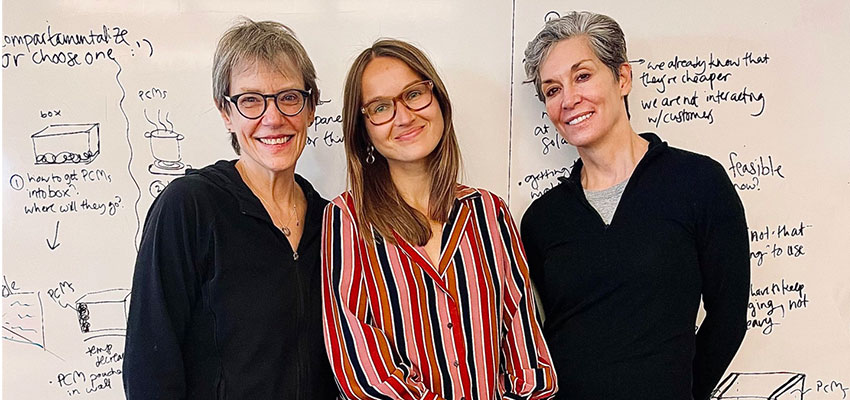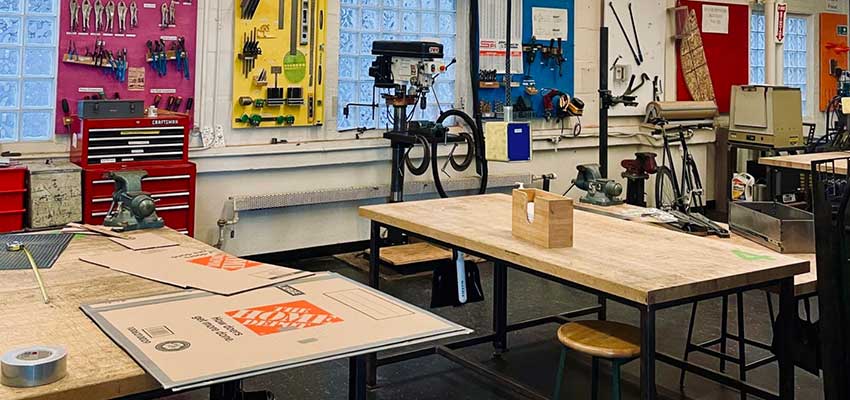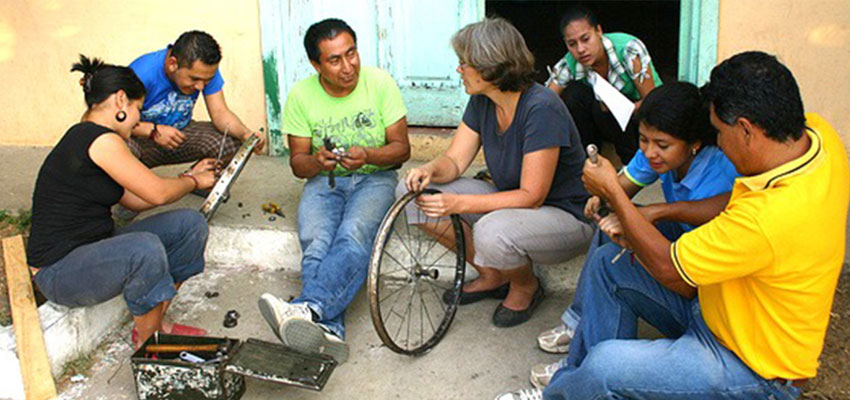
Original blog post on International Women's Media Foundation website
Have I already mentioned that choosing the classes to audit in Cambridge triggered the biggest attack of FOMO yours truly has ever experienced? I might have. As a Neuffer fellow, I got to pick from all of the courses at MIT, and theoretically also at Harvard, Emerson College and Boston University. In other words, I was browsing through thousands of classes at some of the best universities in the world. Don’t get me wrong, I’m far from complaining. I’m incredibly lucky and privileged to have these sort of dilemmas. The choice blew my mind (and broke my brain a little), but there was one class I instantly knew I was going to take – Gender and Development at MIT D-Lab.
Gender and Development is a unique blend of a theoretical course in gender studies and a practical introduction to development work. The course “explores gender and identity, illuminating the power dynamics and root causes of inequality within cultural, political, and economic contexts.” It was created with the intention of helping future development practitioners render their work more gender-sensitive.
And it’s not just talk. Over the duration of the course, students partner with NGOs in South America and Africa to collaborate on local projects related to reproductive health, menstrual health, indigenous women’s rights and urban development (examples of their past projects can be found here). Before the pandemic, the students traveled to these locations, but these days the work is done remotely.
The course is taught by two outstanding professors. Sally Haslanger, who is a Ford Professor of Philosophy and Women’s and Gender Studies at MIT, oversees the more theoretical section on gender. Libby McDonald, an inclusive economies specialist and a development practitioner with decades of experience in the field, is responsible for the practical part. It is a match made in heaven. In our class discussions, we are constantly encouraged to apply abstract academic concepts to practical, everyday dilemmas in the field.
An added benefit is that the class brings together students from different schools, backgrounds and levels of education. There are grad students, PhD students, college students, and then there is me. We have future lawyers, designers, journalists, public health and administration experts from Harvard, MIT, Emerson and also from the INSPER school in São Paulo (all classes are conducted in a hybrid form so that the Brazilian students can participate). One of my classmates is a designer researching social justice… in the outer space! So you get the idea of how far our discussions can sometimes go.

The class is offered by D-Lab, an experimental institute at MIT, which works with people across the globe to design and develop solutions to global poverty and inequality. The philosophy behind D-Lab is designing with the user, rather than for the user – an approach which is more time and labour-consuming, but at the same time more sustainable and ethical. Since its origin in 2002, D-Lab has done remarkable work in the fields of biomass fuel, energy and evaporative cooling for vegetable preservation, to name a few.
On a personal note, to me this class is also an opportunity to learn from two amazing women. It’s so inspiring to observe how Sally and Libby live by their values and constantly learn, allowing their academic work and development practice to evolve. They are passionate, kind and wise. I have a gut feeling that this is not the last time we meet, and that some day we will work on a development project together. I certainly hope so!

About the author
Ada Petriczko is a freelance journalist and foreign correspondent from Poland, covering women’s rights, social justice and culture. As a contributor to the country’s major liberal daily, Gazeta Wyborcza, and the iconic feminist magazine, Wysokie Obcasy, Ada specializes in long-form journalism, particularly narrative features and interviews. She also collaborated with Vespucci Group, Are We Europe and Przekrój among others. Since the beginning of her career in 2014, Ada has travelled extensively, reporting from India, South America and Europe. Read more
More information
MIT D-Lab class: D-Lab: Gender and Development
Contact
Libby McDonald, MIT D-Lab Lecturer, Inclusive Economies lead

